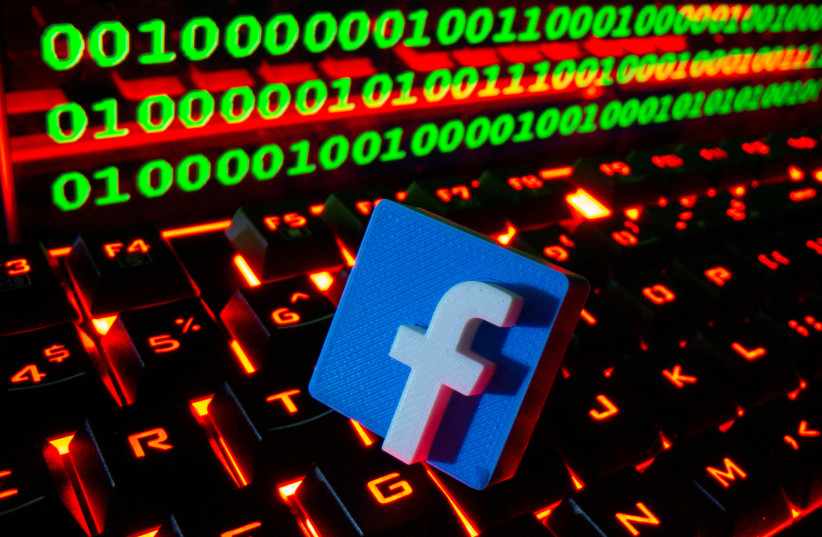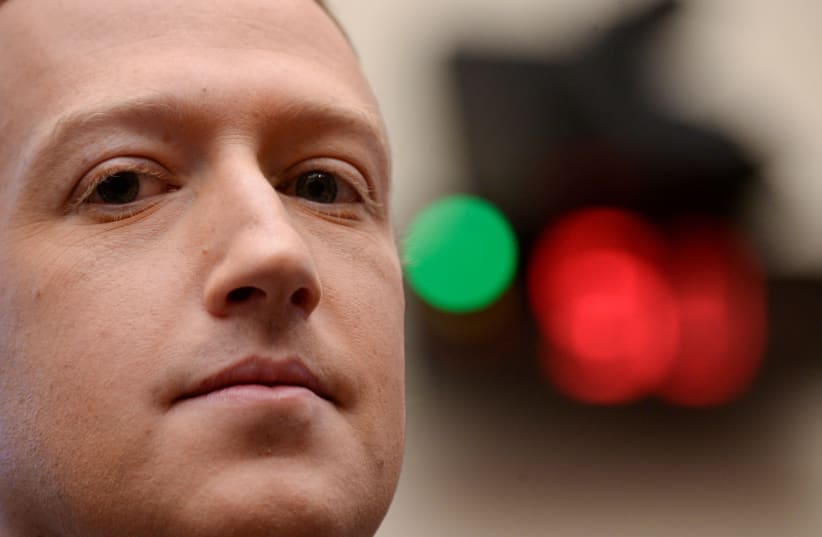THE DICTATOR MARK ZUCKERBERG
Al-Arabiya, Saudi Arabia, October 16
The curious thing about Facebook is that the more scandals it turns out to be involved in, the more its followers fall in love with it. It doesn’t seem like Facebook account holders, knowing that their privacy is violated, exploited and blackmailed, feel the need to punish the perpetrator, despite their ability to do so.
However, following the release of the documents leaked by former Facebook engineer Frances Haugen, as well as Haugen’s testimony before the US Congress about the platform’s manipulation of content through its algorithms, something may finally change. Democrats and Republicans alike seem more willing to condemn Facebook.
The American tech giants that were once a symbol of America’s indomitable and incomparable liberalism, and the embodiment of the wonders of creativity, now seem like vicious tools used to manipulate the minds of innocent civilians and steal information.
The first slap in the face came in 2018 when British newspaper The Guardian revealed that the data and personal information used by Cambridge Analytica to influence the US elections and help Donald Trump get to power were obtained with the full support of Facebook, contrary to what the company had claimed.


Then came another scandal about Russian interference in US politics through advertisements targeting voters. And despite the fact that Mark Zuckerberg himself came to testify before Congress, nothing changed. At that time, the manipulation was in favor of Trump, who was in the White House, so the US administration had an interest in letting the issue go.
Then came another shock, when Facebook and Twitter blocked the accounts of president Trump following the violent events on Capitol Hill. This was the first time that the Western world finally had a taste of its own medicine and realized that Facebook regularly censors opinions. The same people who stood idly by as Facebook silenced the voices of the masses during the Arab Spring, who ignored Facebook’s systematic removal of testimonies shared by defenseless Palestinians under Israeli bombardment, now realized that they, too, can become Facebook’s next victims.
America is at least 15 years late in putting an end to Facebook’s violations, which are among the most dangerous to democracy and freedom of expression in the world today. There is no democracy without transparency and accountability, and Facebook lacks both.
This is also our problem, in the Arab world, where every election turns out to be the reelection of the same corrupt voices into power. We never learn our lesson.
Zuckerberg can be classified as the world’s largest dictator. He does not have armored vehicles, intercontinental missiles and submarines roaming the seas, but he does control the minds of more than a third of the world’s population. He can control their secrets, manipulate their moods and, in many cases, determine their fate. – Sawsan al-Abtah
SOLEIMANI’S SECOND DEATH
Asharq al-Awsat, London, October 14
Well done, Iraq! This was the phrase that came to my mind following the successful conclusion of the largest general elections in Iraq, which took place without a single incident.
These congratulations seemed deserved for several reasons.
First, the elections – the fifth since Iraq’s liberation in 2003 – reveal that, despite the political setbacks experienced by the people of Iraq, the process of transition to democracy is still very much alive and under way.
These elections also reaffirmed the invaluable consensus that had been reached among Iraqis from across the political spectrum on the idea that winning and assuming power is legitimate only through democratic elections. The era of winning or losing power through rebellions, military coups, street riots, foreign invasions or assassinations are over in Iraq for good.
Since parliament is the only channel for exercising the powers of the people, the results of the elections will determine who will serve as president and prime minister. Moreover, due to a system of proportional representation, no one sect, party or group can win a monopoly over all state institutions.
In a country that has suffered for decades from a brutal single-party system, elections today have the healing power of unity in diversity. Indeed, the fact that elections were held in and of itself is a cause for celebration.
To be sure, major players, including some foreign actors and political barons drunk from power, did everything they could to prevent these elections. For months, the official media in the Islamic Republic of Iran opposed holding early elections in Iraq.
And when it became clear that the electoral process was still going to take place, Tehran began working to influence the outcome. Supreme Leader Ayatollah Ali Khamenei provided $200 million from the National Emergency Fund to enable the Quds Force, Tehran’s foreign legion which operates in many countries in the region, to restore its Iraqi proxies to power.
The media in Tehran described the Iraqi elections as “Qasem Soleimani’s elections,” in an implicit indication that Iraqi voters will vindicate the death of the general by voting heavily for his local agents.
Since Iraqis living abroad could not vote this time, the Quds Force organized daily trips for an unknown number of dual nationals living in Iran, some of whom have lived in Iran for decades, to vote for Quds Force candidates.
However, as the results revealed, the performance of Tehran’s electoral agents was worse than anyone could have imagined. It is worth noting here that the militia-dominated bloc led by Hadi al-Amiri lost 35 of its 50 seats. The biggest winner was from the Shi’ite side, the splinter Moqtada al-Sadr bloc, which called for limiting the possession of weapons to the state only. In other words, the people voted to disband the militias controlled by Iran.
Over the past few days, Iranian media outlets have been trying to find some solace in the fact that former prime minister Nouri al-Maliki has managed to stay in the game, describing it as a victory for “the path of martyr Soleimani.”
Yet Maliki, while always close to the Iranian Revolutionary Guards, was never a Soleimani patron, simply because Soleimani was intolerant to anyone with a sense of self-esteem.
On the other hand, we find that Soleimani’s ideal servant is Hassan Nasrallah, the leader of Hezbollah, who, according to Soleimani’s only lengthy interview, “would not have drunk water without consulting with us.”
In an effort to reduce the impact of the Iraqi elections, the Iranian official media also focused on the issue of “low voter turnout.” Indeed, the last election attracted only 43% of registered voters, a point or two lower than the previous one. However, the official media in Tehran quickly abandoned this topic, as it reminded people of a lower voter turnout during the recent Iranian presidential elections.
Moreover, the recent Iraqi elections have had other interesting features. This is the first election of its kind to be held in 83 districts, instead of 18 major districts. The new rule allows voters to elect individual candidates, rather than lists provided by party coalitions. The use of biometric cards also helped prevent organized fraud.
The fact that a large number of candidates, some 3,500, competed for the 329 seats underscores the continuing appeal of the democratic process to a growing segment of Iraqi citizens. Among those who participated in the elections were the largest number recorded to date of young activists, women and independent individuals.
It is clear that a new generation of Iraqi politicians is taking shape. The fact that the young activists, who represented street protesters before the COVID-19 crisis, won more than 8% of the seats may indicate the emergence of new trends in Iraqi politics.
The findings also indicate a faster exclusion of the former exiles and dual nationals who until recently dominated the political scene in Baghdad.
Last week, Iranian media described the Iraqi elections as “the first test for General Esmail Ghaani,” the lackluster bureaucrat who replaced the ostentatious Soleimani. Well, Qaani came out with the loss he deserved. As for Soleimani, who was assassinated in Baghdad, his ghost is now witnessing death for the second time in a row. – Amir Taheri
Translated by Asaf Zilberfarb.
